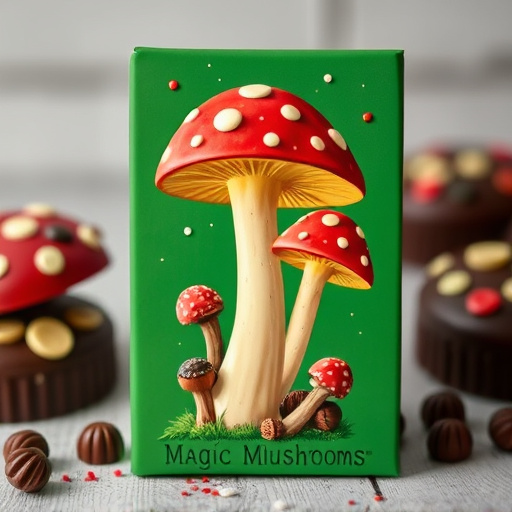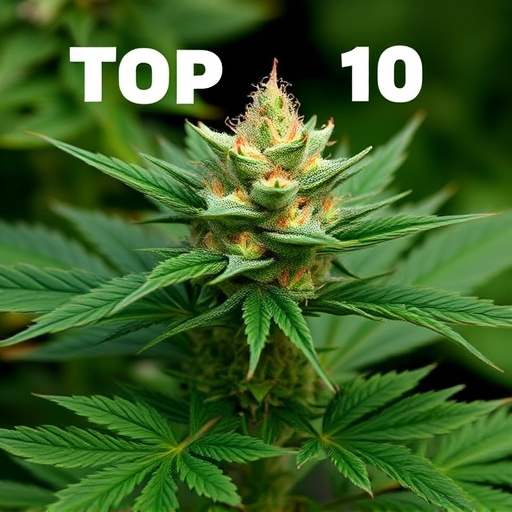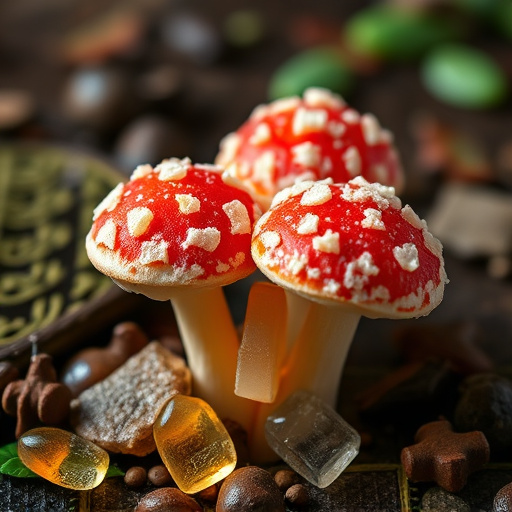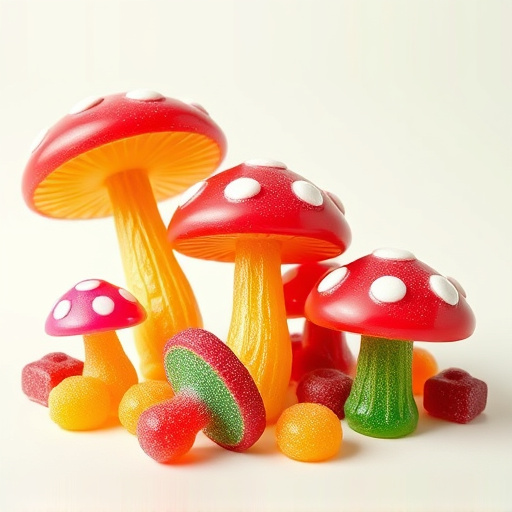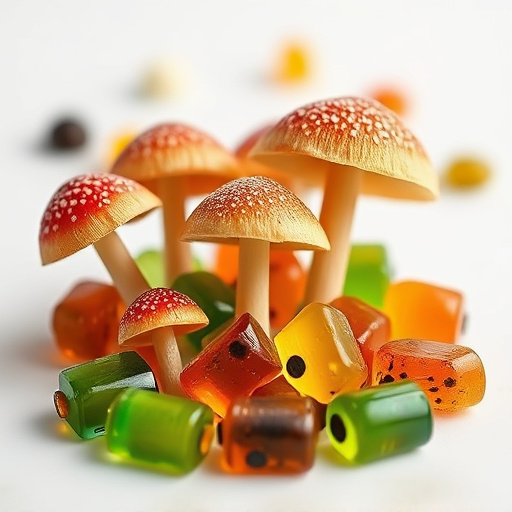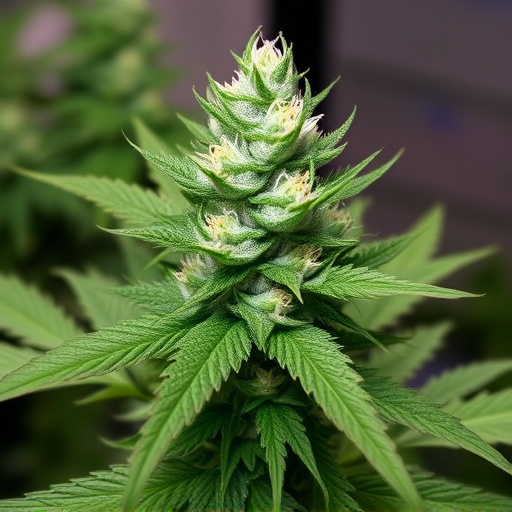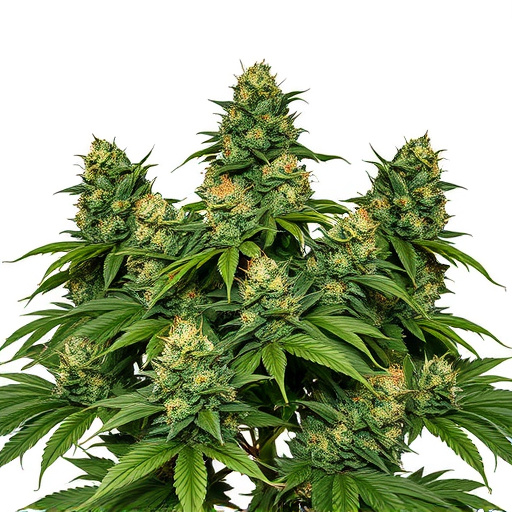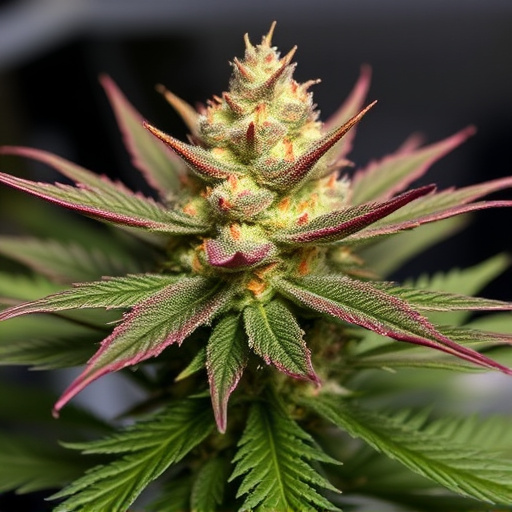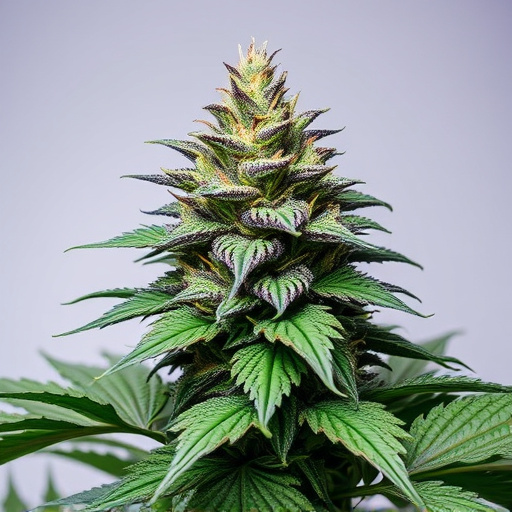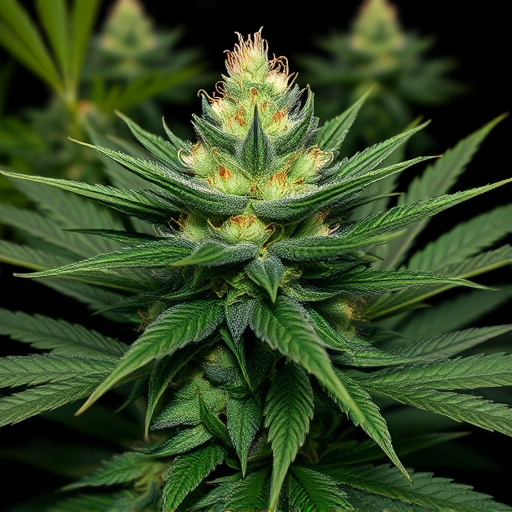Big bud strains of cannabis interact with dopamine and serotonin, "feel-good" chemicals in the brain that regulate mood, pleasure, motivation, and reward. THC binds to CB1 receptors, increasing dopamine release and causing short-term effects like euphoria. CBD may indirectly modulate neurotransmitter activity, balancing THC's effects. While offering potential therapeutic benefits, chronic use could disrupt neurotransmitter balance, leading to long-term mental health issues such as anxiety and depression. This complex interplay highlights the double-edged sword of big bud strains' impact on human well-being.
“Unraveling the intricate dance between cannabis, dopamine, and serotonin—a trio that orchestrates our pleasure, mood, and well-being. This article delves into the complex relationship between cannabis and these vital neurotransmitters, specifically exploring how ‘big bud’ strains may impact their delicate balance.
While cannabis has been linked to temporary boosts in dopamine, its interaction with serotonin remains a mystery, offering both potential therapeutic benefits and challenges. We’ll explore each neurotransmitter’s role in regulating mood, shedding light on the effects that could be heightened or disrupted by specific cannabis varieties.”
- Understanding Dopamine and Serotonin: The Neurotransmitters of Pleasure and Mood Regulation
- Cannabis Interaction with Dopamine and Serotonin Systems: A Complex Relationship
- The Impact of Big Bud Strains: Enhancing or Disrupting Neurotransmitter Balance?
Understanding Dopamine and Serotonin: The Neurotransmitters of Pleasure and Mood Regulation
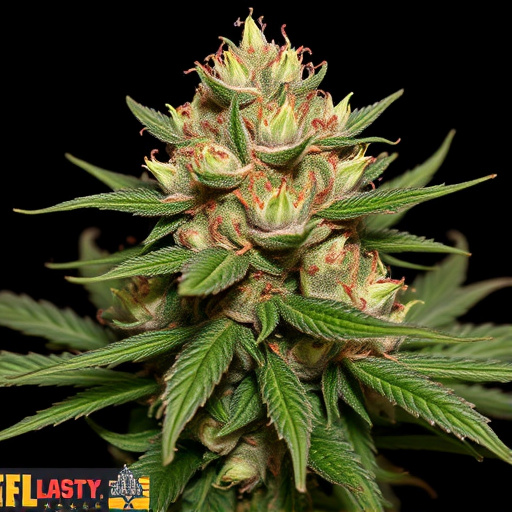
Dopamine and serotonin are two key neurotransmitters that play a pivotal role in regulating mood, pleasure, motivation, and reward in the human brain. Often referred to as the “feel-good” chemicals, they are intricately linked to our emotional experiences and overall well-being. Understanding their functions is essential when exploring how cannabis interacts with these chemical messengers.
Dopamine, often associated with the brain’s reward system, is responsible for inducing feelings of pleasure, motivation, and drive. It reinforces rewarding behaviors and plays a crucial role in movement and cognitive function. Serotonin, on the other hand, regulates mood, appetite, sleep, and perception of pain. Imbalances in serotonin are linked to various mental health conditions. The interaction between cannabis and these neurotransmitters is complex, with different big bud strains offering diverse effects that can either enhance or modulate dopamine and serotonin levels, potentially providing therapeutic benefits or contributing to psychological effects commonly associated with cannabis use.
Cannabis Interaction with Dopamine and Serotonin Systems: A Complex Relationship
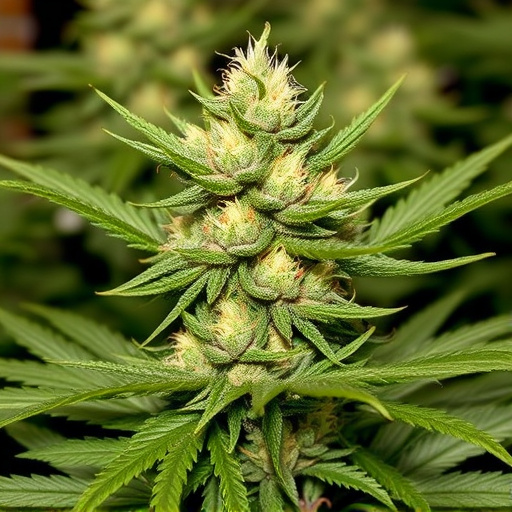
Cannabis has a complex and multifaceted relationship with the brain’s dopamine and serotonin systems, which play pivotal roles in reward, mood regulation, and cognition. While it’s often associated with pleasure and euphoria, primarily through its interaction with dopamine, the impact on serotonin is more nuanced. Cannabis contains various compounds, including THC (tetrahydrocannabinol) and CBD (cannabidiol), that bind to specific receptors in the brain, influencing neurotransmitter release and activity.
THC, a psychoactive compound found in big bud strains, directly interacts with dopamine by binding to CB1 receptors, leading to increased dopamine release. This mechanism underlies many of cannabis’ immediate effects, such as heightened pleasure and motivation. Conversely, CBD, present in smaller amounts but gaining attention for its potential therapeutic benefits, appears to modulate neurotransmitter activity indirectly, potentially balancing out some of THC’s influences on dopamine and serotonin systems. This complex interplay offers a glimpse into the intricate ways cannabis can affect brain chemistry, contributing to both immediate experiences and long-term effects.
The Impact of Big Bud Strains: Enhancing or Disrupting Neurotransmitter Balance?
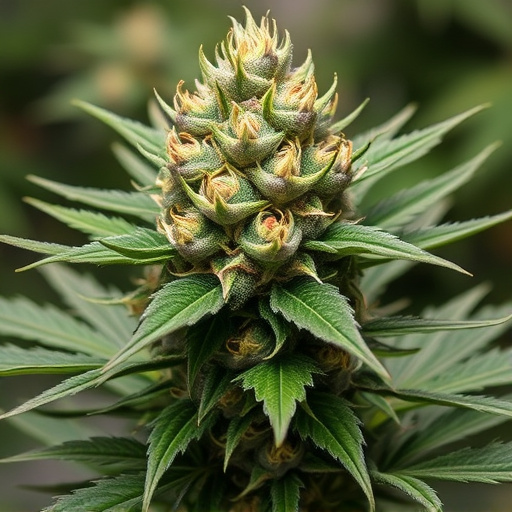
Big bud strains, known for their potent and robust effects, have a complex relationship with dopamine and serotonin, the neurotransmitters pivotal to mood, pleasure, and motivation. While some research suggests that cannabis can enhance levels of these chemicals, particularly dopamine, in the short term, leading to feelings of euphoria and relaxation, chronic use of big bud strains may disrupt the delicate balance of neurotransmitters in the brain.
The impact of these powerful strains could lead to long-term consequences on mental health, potentially exacerbating conditions like anxiety and depression. The complex interplay between cannabis and neurotransmitters is a double-edged sword; it can offer temporary relief for some individuals experiencing distress but may also contribute to dysregulation of these vital chemical messengers over time.
In understanding how cannabis affects dopamine and serotonin, we uncover a complex relationship that varies depending on factors like strain composition, particularly the influence of big bud strains. While these strains may offer potential benefits in mood regulation, pleasure seeking, and reducing stress, their impact can also lead to disruptions in neurotransmitter balance. Further research is crucial to harness the therapeutic potential of cannabis while mitigating its adverse effects, ensuring a responsible and informed approach to its use.
